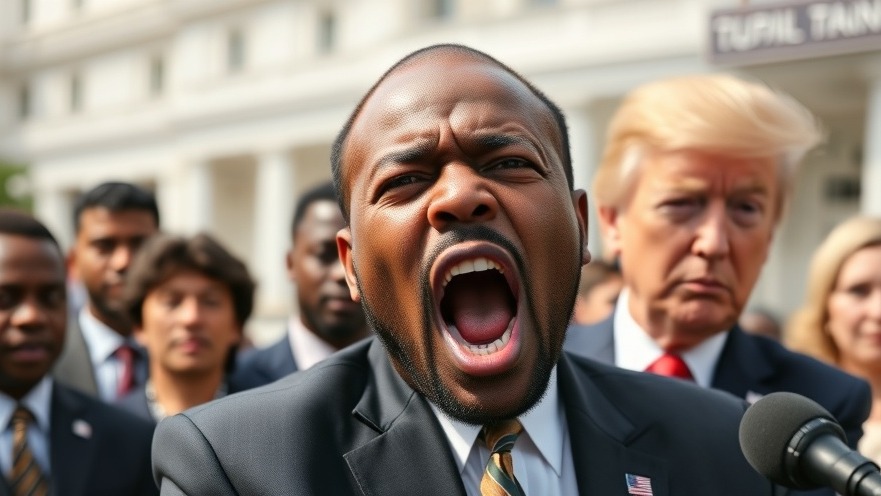
Understanding the Context: Chicago's Crime Dilemma
In the wake of escalating crime rates that have plagued urban areas like Chicago, calls for military involvement in domestic policing have emerged. However, as Mayor Lori Lightfoot passionately articulated, "You don't solve crime by sending in the military." This assertion underscores a pivotal discussion: should military forces be deployed to address civil unrest and crime, or is there a more effective approach that respects civil liberties and relies on community-driven solutions?
The video 'You Don't Solve Crime By Sending In The Military' presents a compelling argument against militarization in U.S. policing, and it has inspired us to delve deeper into this critical social issue.
Historical Perspectives on Military Policing
The use of military forces in civilian matters has a complicated and often controversial history in the United States. Historically, military intervention during times of civil unrest—such as the 1968 Democratic National Convention protests—was met with significant backlash. This sentiment feeds into current debates about how best to handle crime without infringing upon citizens' rights or compromising local governance. Lightfoot’s position is strongly rooted in the belief that effective crime prevention requires community engagement, not the imposition of military might.
Community Policing: A Viable Alternative?
Instead of resorting to military options, urban leaders argue for the expansion of community policing initiatives. This method fosters positive relationships between law enforcement and community members, encouraging collaboration in maintaining safety. As crime rates rise, investing in community programs and social services could prove more beneficial than militarization, potentially leading to a long-term decrease in crime. These proactive methods work towards rebuilding trust and providing necessary resources, tackling the root causes of crime effectively.
Current Events Impacting the Conversation
This discussion is not occurring in a vacuum. Recent U.S. headlines indicate a rise in national crime trends, contributing to the political pressure for immediate solutions. With the public increasingly expressing concerns over personal safety, the temptation to call for military intervention grows. Political leaders must navigate this complex landscape with caution, as the implications of such actions could reinforce negative stereotypes surrounding urban crime and policing practices while eroding community trust.
Diverse Perspectives and Counterarguments
While Mayor Lightfoot advocates for community-based solutions, there are diverse opinions on the efficacy of such strategies. Some law enforcement officials argue that without the threat of military presence, crime might escalate unchecked, demonstrating the need for a more vigorous approach. However, critics assert that militarizing police forces can lead to a culture of fear, adversely affecting communities and leading to increased tensions between law enforcement and the public. Balancing safety and civil rights remains a contentious issue, with each side presenting compelling arguments.
Predicting Future Trends: Policy Implications Ahead
As this dialogue around military involvement in policing continues, it’s essential to consider the broader implications for U.S. domestic policy. As crime evolves, so too must the strategies employed to combat it. Moreover, upcoming elections will likely influence policies regarding law enforcement, urban safety, and community initiatives. Future administrations may need to take a more holistic approach—selecting policies that promote social equity while ensuring public safety without resorting to aggressive military tactics.
Effective Solutions for Citizens' Safety
So, what actions can communities take to enhance their safety? Community engagement initiatives, improved access to mental health resources, and investments in education and job training programs can significantly contribute to crime reduction over time. Well-designed urban development initiatives can also play a crucial role in preventing crime and promoting sustainability in communities. Engaging local citizens in the conversation ensures their voices are heard and their needs are considered.
An Appeal for Thoughtfulness
In light of these pressing issues and the public debate triggered by calls for military intervention, it is vital for local communities to advocate for comprehensive and compassionate solutions that emphasize social justice and community well-being.
As citizens, taking an active role in discussions about public safety not only enhances the effectiveness of community initiatives but also shapes the future of our cities. Everyone has a stake in making neighborhoods safer through methods that uplift rather than dominate.
 Add Element
Add Element  Add Row
Add Row 



Write A Comment